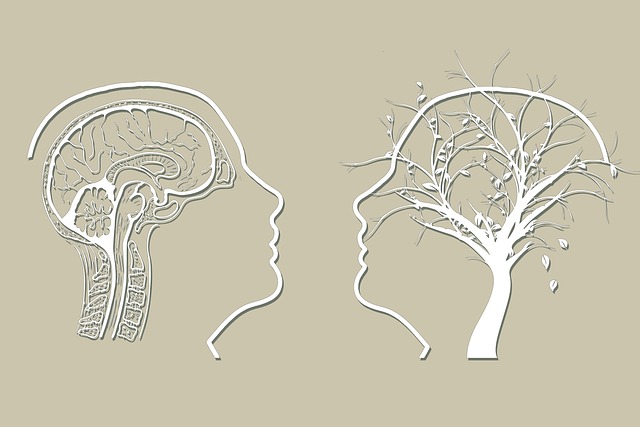Centennial Young Adults Therapy equips 21st-century young adults with vital emotion regulation skills to navigate academic pressures, social media influence, and the pursuit of success. Using evidence-based methods like CBT and mindfulness, therapists teach clients to identify triggers, develop healthy coping mechanisms, reduce stress/anxiety, prevent burnout, and boost resilience. Mindfulness practice, self-care, and crisis intervention strategies empower young adults to manage emotions effectively, enhancing decision-making, relationships, and overall quality of life. Culturally competent healthcare providers trained in these methods can positively impact diverse communities.
Emotion regulation techniques are essential skills for young adults navigating today’s challenges. This article explores the significance of these techniques in fostering mental well-being, with a particular focus on the role of Centennial Young Adults Therapy. We delve into understanding emotion regulation, its practical strategies, and overcoming common hurdles. Additionally, we discuss long-term benefits, highlighting how these skills enhance personal growth. By embracing evidence-based approaches like Centennial Young Adults Therapy, young adults can thrive in an ever-changing world.
- Understanding Emotion Regulation: Why It's Crucial for Young Adults
- The Role of Centennial Young Adults Therapy in Teaching These Techniques
- Practical Strategies: Effective Tools for Daily Application
- Overcoming Challenges: Common Hurdles and How to Navigate Them
- Long-term Benefits: Impact on Mental Well-being and Personal Growth
Understanding Emotion Regulation: Why It's Crucial for Young Adults

Emotion regulation is a vital skill for young adults navigating the complexities of life in the 21st century. For Centennial Young Adults Therapy clients, understanding and managing emotions effectively can be transformative. In today’s fast-paced world, many young people struggle with overwhelming feelings due to academic pressures, social media influence, and the constant pursuit of success. Learning to recognize and control these emotions is essential for their well-being.
By teaching positive thinking strategies and mood management techniques, therapists help clients reduce the impact of mental illness stigma and foster resilience. These skills enable young adults to make more thoughtful decisions, improve relationships, and enhance overall quality of life. Through therapy, they can learn to transform negative thought patterns, better understand their emotional triggers, and develop healthier coping mechanisms.
The Role of Centennial Young Adults Therapy in Teaching These Techniques

Centennial Young Adults Therapy plays a pivotal role in teaching emotion regulation techniques to its target demographic. This therapeutic approach is tailored to meet the unique needs of young adults, who often face heightened emotional challenges due to life’s transitions and increased pressure from academic, professional, and social demands. By employing evidence-based methods, such as cognitive-behavioral therapy (CBT) and mindfulness practices, Centennial Young Adults Therapy equips individuals with the tools necessary for effective self-regulation.
Through structured sessions, therapists guide young adults in understanding their emotional triggers and developing healthy coping strategies. This process not only enhances their ability to manage stress and anxiety but also contributes to preventing burnout, a common issue among healthcare providers who adopt Self-Care Practices as integral parts of their routines. By integrating these techniques into daily lives, individuals can navigate the complexities of modern living while fostering resilience and nurturing their Emotional Healing Processes.
Practical Strategies: Effective Tools for Daily Application

Emotion regulation techniques are practical strategies that young adults can integrate into their daily lives, especially through Centennial Young Adults Therapy. These tools are designed to foster resilience building and depression prevention, helping individuals navigate life’s challenges with greater ease. One effective method is mindfulness practice, which encourages staying present and observing emotions without judgment. This simple yet powerful approach enables better understanding of one’s triggers and responses, allowing for more thoughtful decisions in the heat of the moment.
Additionally, Self-Care Practices play a pivotal role in emotion regulation. Engaging in activities that replenish energy, such as exercise, quality sleep, and connecting with nature, are essential components of maintaining emotional balance. Centennial Young Adults Therapy guides individuals through tailoring these practices to their unique needs, enhancing overall well-being and resilience. By combining mindfulness and Self-Care Practices, young adults can develop a robust toolkit for managing emotions effectively in their daily lives.
Overcoming Challenges: Common Hurdles and How to Navigate Them

Overcoming challenges is a vital aspect of teaching emotion regulation techniques, especially when targeting Centennial Young Adults in therapy settings. One common hurdle is helping individuals recognize and accept their emotions, which can be difficult for those struggling with self-awareness or experiencing intense feelings that feel overwhelming. To navigate this, therapists can employ strategies like mindful breathing exercises and emotional labeling, encouraging clients to observe their sensations without judgment. Social Skills Training can also foster a safe space for practicing these techniques in real-life scenarios.
Another challenge arises when addressing triggers and past traumas. Some young adults may have experienced complex or unresolved issues that impact their current emotional responses. Here, Crisis Intervention Guidance becomes essential, offering immediate support and coping mechanisms while helping individuals process and reframe traumatic memories. Stress Management Workshops Organization can further equip them with long-term strategies to manage stress and prevent future crises.
Long-term Benefits: Impact on Mental Well-being and Personal Growth

Learning and practicing emotion regulation techniques during young adulthood can have profound long-term benefits for mental well-being. This period is a crucial time for brain development, and cultivating emotional intelligence through therapy or other guidance can help young adults navigate life’s challenges more effectively. By mastering crisis intervention skills and enhancing their emotional regulation, Centennial young adults can foster resilience, improve coping mechanisms, and reduce the risk of developing long-term mental health issues.
These techniques empower individuals to manage stress, anxiety, and difficult emotions, leading to improved personal growth and overall life satisfaction. With better emotional regulation, young adults can make more thoughtful decisions, maintain healthier relationships, and adapt to changing circumstances with greater ease. The impact extends beyond individual experiences, as culturally competent healthcare providers equipped with such training can also contribute to positive community outcomes by offering guidance that respects diverse backgrounds and perspectives.
Centennial Young Adults Therapy plays a pivotal role in empowering individuals to navigate their emotions effectively. By understanding the importance of emotion regulation, learning practical strategies, and overcoming challenges, young adults can harness long-term benefits that enhance mental well-being and foster personal growth. These skills are invaluable for thriving in today’s complex world, ensuring a more balanced and fulfilling life.














